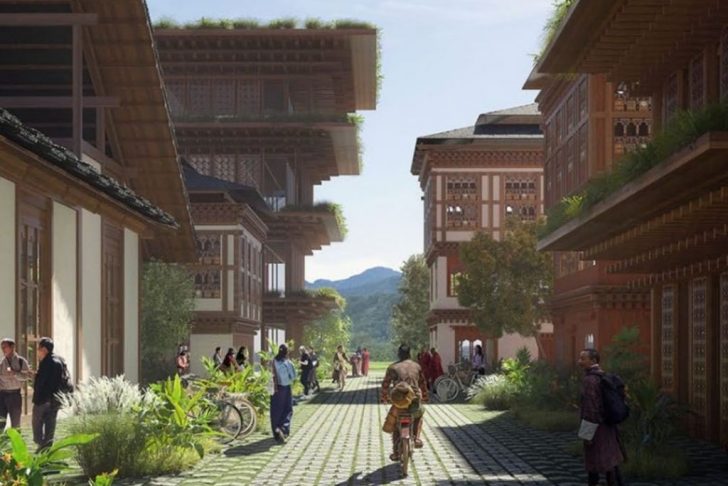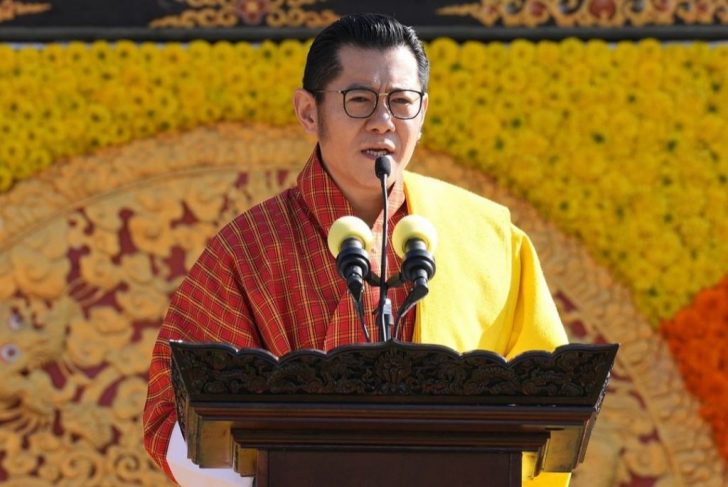The Kingdom of Bhutan, a nation famed for its Gross National Happiness index, is redefining urban living with the Gelephu Mindfulness City. Backed by a $100 million bond, this forward-thinking city aims to elevate Bhutan’s economy while setting a global example of sustainable, well-being-centered development. Positioned in Gelephu, near the India-Bhutan border, the city is envisioned as a hub for eco-friendly and mindfulness-focused urban living.
Gelephu Mindfulness City: A Vision for Sustainable Living
The Gelephu Mindfulness City (GMC) project spans 2,500 square kilometers and promotes holistic lifestyles through dedicated walking and cycling paths, green meditation spaces, and wellness centers.
Mindfulness-focused education will be integral, fostering a balanced approach to personal growth and well-being. GMC will support industries like healthcare, agriculture, finance, and technology to create a sustainable ecosystem. Bhutan aims to showcase GMC as an innovative model for cities prioritizing mental well-being and economic and environmental health.
Senior GMC official Rabsel Dorji highlighted that mindfulness reflects the core of Bhutanese values, aligning the city’s mission with Bhutan’s national identity.
“Mindfulness is at the core of our values-based city and aligns with the ethos and identity of our nation,” Dorji stated, emphasizing the project’s alignment with Bhutan’s unique approach to balancing progress with tradition. The city represents Bhutan’s intent to enhance the quality of life through mindfulness and environmentally conscious practices.

Funding and Economic Goals
GMC is primarily financed through the GMC Nation Building Bond, a funding option accessible to non-resident Bhutanese. Subscriptions will remain open until December 17, and funds raised will go toward essential infrastructure, green energy development, and sustainable transportation systems. By investing in carbon-neutral infrastructure, GMC aligns with Bhutan’s commitment to maintaining its status as the world’s only carbon-negative nation.
The government anticipates that this transformative project will contribute substantially to economic growth. The GMC project also serves as a strategy to address Bhutan’s youth unemployment, which has reached nearly 30% in recent years. By establishing a modern urban center that honors Bhutanese culture, the government aims to reduce the migration of young people seeking opportunities abroad.
The city is expected to offer employment across various sectors, from green energy and finance to tourism and agriculture, providing a viable alternative to migration and fostering a self-sufficient urban economy.
Overcoming Geographic and Regional Challenges
The ambitious GMC project, conceived by Bhutan’s King Jigme Khesar Namgyal Wangchuck, faces unique challenges. It plans to host 150,000 residents in its early phases and eventually grow to accommodate over a million people. Bhutan’s mountainous, landlocked terrain presents logistical hurdles for connectivity.

Infrastructure expert Surya Raj Acharya pointed out that the project’s competitiveness hinges on effective connectivity, which Bhutan’s geography may complicate, ensuring access to global logistics will be essential for GMC to thrive as a regional hub.
India, Bhutan’s most significant economic partner, has extended its support by planning to connect its rail and road network to the Gelephu border. This enhanced connectivity is expected to bridge Bhutan with significant trade routes, positioning GMC as an accessible and economically integrated city.
The collaboration reflects India’s interest in supporting Bhutan’s vision of sustainable urban growth and aligns with the broader regional objective of sustainable development across South Asia. Bhutan’s commitment to balancing economic growth with environmental consciousness presents GMC as a potential model for modern cities worldwide.
The Gelephu Mindfulness City, with its unique integration of mindfulness and eco-friendly principles, is an ambitious initiative set to transform Bhutan’s economic landscape and redefine sustainable urban living. With strong regional support and an innovative funding approach, GMC is poised to contribute significantly to Bhutan’s economic resilience and well-being.
This project serves as an example of how nations can reimagine urban development by focusing on quality of life, environmental sustainability, and economic self-sufficiency.




